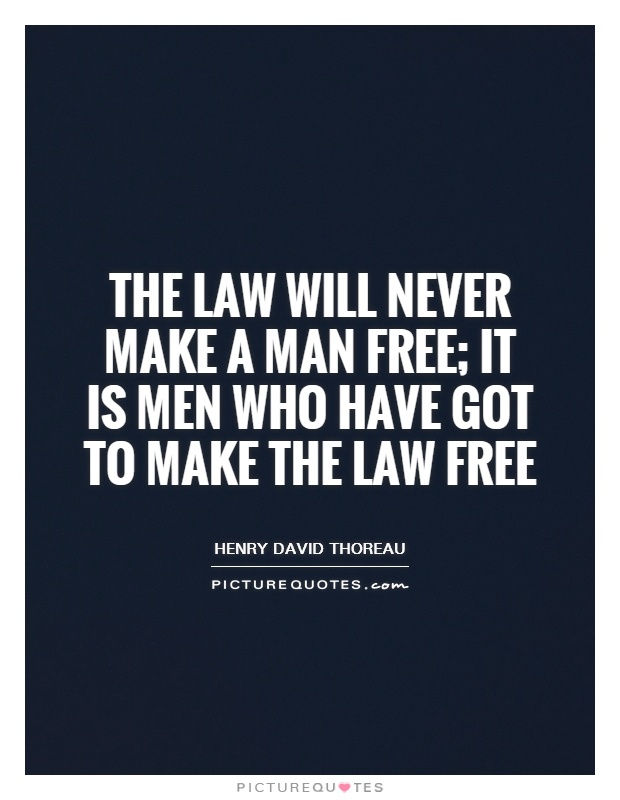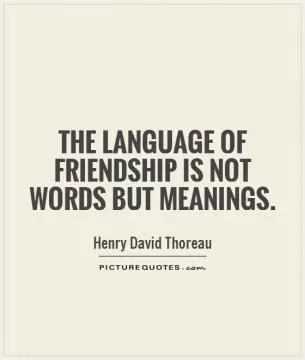The law will never make a man free; it is men who have got to make the law free

The law will never make a man free; it is men who have got to make the law free
Henry David Thoreau, a renowned American philosopher, writer, and transcendentalist, was a firm believer in the power of individual conscience and the importance of civil disobedience in the face of unjust laws. Thoreau's famous essay "Civil Disobedience" is a testament to his belief that individuals have a moral obligation to resist unjust laws and government actions.Thoreau's quote, "The law will never make a man free; it is men who have got to make the law free," encapsulates his belief that true freedom cannot be granted by laws alone. Instead, it is up to individuals to challenge and change unjust laws through their actions and beliefs. Thoreau believed that individuals have a responsibility to act according to their own conscience, even if it means going against the law.
Thoreau's ideas on civil disobedience were influenced by his own experiences, particularly his refusal to pay taxes in protest against the Mexican-American War and slavery. Thoreau spent a night in jail for his actions, which inspired him to write "Civil Disobedience" as a defense of his beliefs. In the essay, Thoreau argues that individuals have a duty to resist unjust laws and government actions through nonviolent means, such as peaceful protests and acts of civil disobedience.
Thoreau's quote also reflects his belief in the power of individual agency and the ability of individuals to effect change in society. He believed that true freedom could only be achieved through the actions of individuals who are willing to stand up for their beliefs and challenge the status quo. Thoreau's ideas on civil disobedience and individual conscience have had a lasting impact on social and political movements around the world, inspiring generations of activists and thinkers to fight for justice and equality.












 Friendship Quotes
Friendship Quotes Love Quotes
Love Quotes Life Quotes
Life Quotes Funny Quotes
Funny Quotes Motivational Quotes
Motivational Quotes Inspirational Quotes
Inspirational Quotes